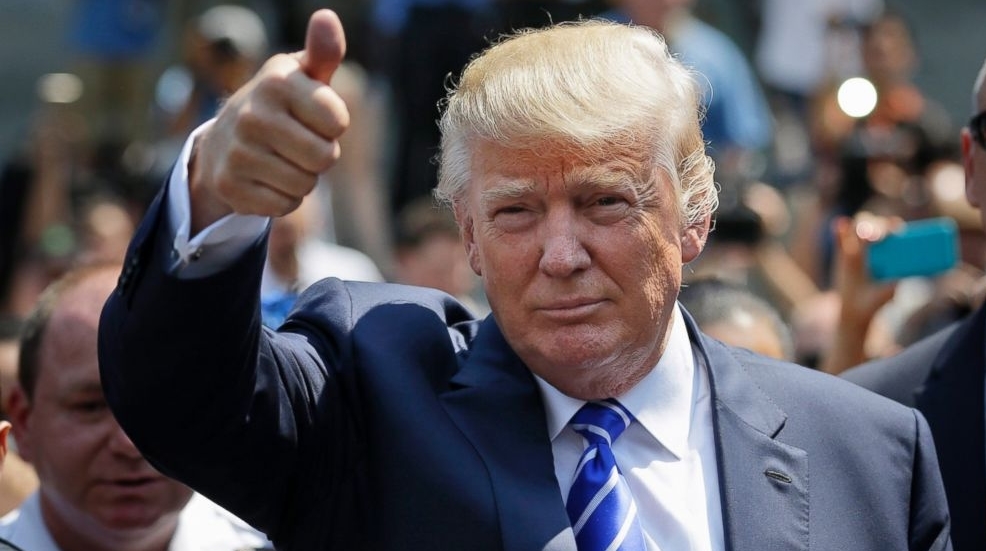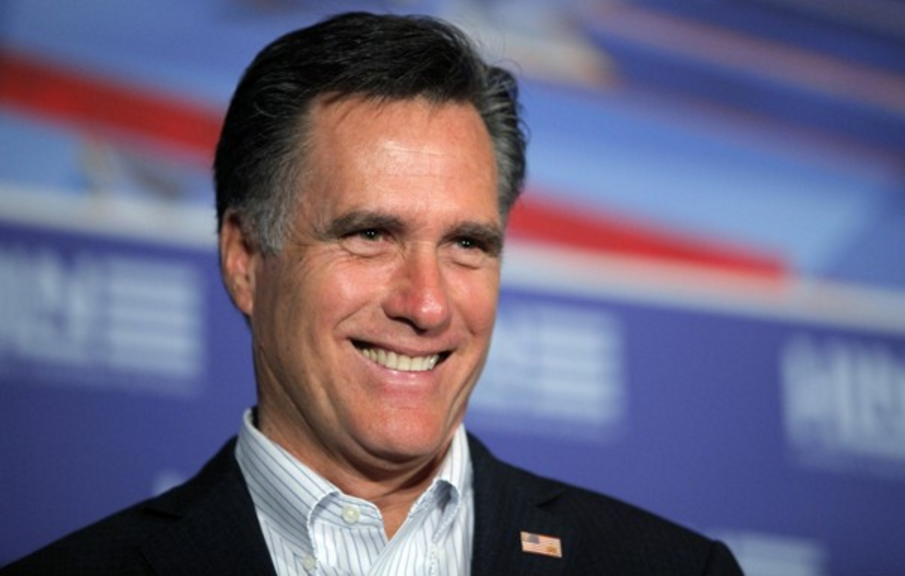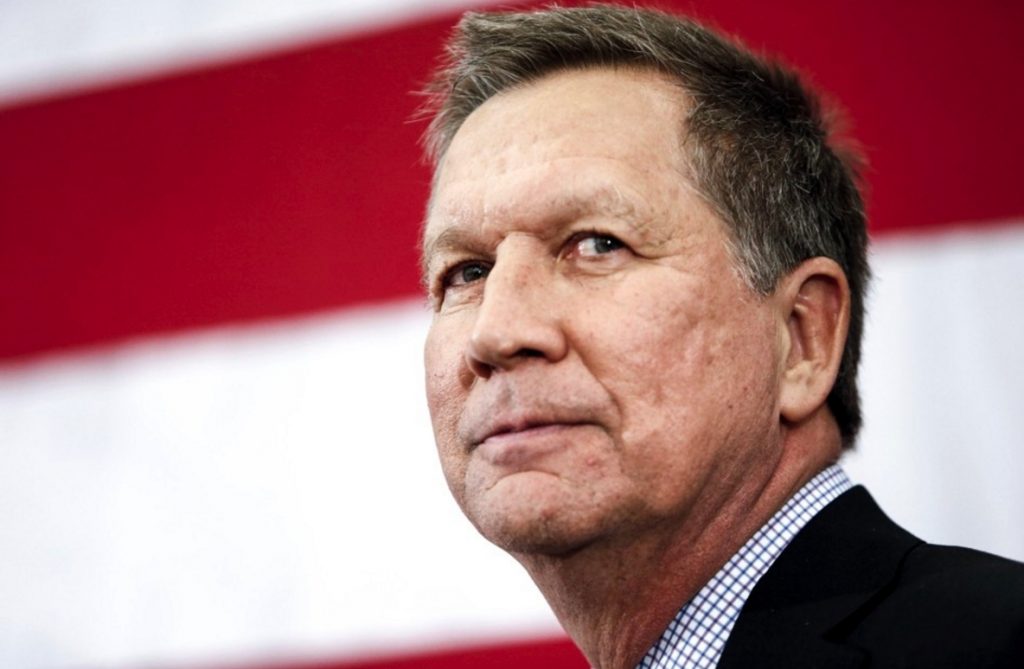
Voters voted in Arizona, Utah and, for Democrats, Idaho on Tuesday night. Some people won. Others lost.
— Donald Trump: Arizona was the big prize of the night, the third biggest winner-take-all state on the map with 58 delegates. There was some chatter in the days leading up to the vote that Ted Cruz might be sneaking up on Trump — the Texas senator spent time in the state — and could be poised to pull an upset. Nope. Trump won by 22 points, taking 47 percent of the vote. Would Trump have had a better night if Cruz had come in under 50 percent in Utah? Sure. But only by a little since Trump was never going to take more than a small handful of delegates out of the heavily Mormon State.
Nothing that happened on Tuesday night changed the dynamic of the GOP race. Trump, at 739 delegates, is clearly in first place and still the only candidate with a genuine chance of winning the 1,237 delegates to formally claim the party’s nomination. That’s a good night for him.
— Hillary Clinton: The only way that Clinton isn’t the Democratic nominee is if she starts losing big states by large margins. That didn’t happen on Tuesday night. Clinton won the big delegate prize of Arizona while losing Idaho and Utah by big numbers to Bernie Sanders. The Sanders folks will focus on his two wins but the truth of Sanders’ delegate deficit is he needs to win states like Arizona with 80 percent of the vote, not states like Utah or Idaho. There just aren’t enough delegates in those to narrow Clinton’s lead. And, she knows it. Notice that her speeches in the last week or so — since the March 15 votes — have turned their focus to Trump almost entirely. Clinton is in the midst of a general election pivot. Tuesday night proved, again, why this nomination fight is close to over.
— Ted Cruz: No, Cruz didn’t make up any ground on Trump. And, no he has no realistic chance of winning the 1,237 delegates he needs before the first ballot of the party’s national convention in Cleveland. But, by taking 69 percent of the vote in the Beehive State, Cruz not only won all of the state’s 40 delegates but also made clear that he is the only legitimate alternative to Trump in the race. It’s not an accident that Jeb Bush endorsed Cruz on Wednesday morning, just hours after the Utah vote. There are now two weeks until the Wisconsin winner-take-all primary. Cruz, with the full backing of the party establishment, needs to beat Trump there. If not, the Trump train, which has already left the station, might be unstoppable.
— Mitt Romney: The former Massachusetts governor urged Utah voters to cast a vote for Cruz and not John Kasich if they wanted to stop Trump from claiming the nomination. It worked. While I am under no illusion that Cruz’s win can be claimed entirely by Romney, it’s also hard to conclude it made no difference. If Trump does come up short of the 1,237 delegates, Romney, who was one of the first major party figures to step up publicly and condemn Trump, will deserve considerable credit.
— Wisconsin: The Badger State primary on April 5 now has huge stakes. For Trump, it’s a chance to take another big step to the 1,237 delegates he needs. For Cruz, it’s a chance to stop Trump, literally, with the establishment firmly behind him. For Kasich, it’s his best (last?) chance to prove he is more than just a guy who can win his home state. Plus, Scott Walker!
— John Kasich: In the wake of Kasich’s Ohio win last Tuesday, there was active chatter that Utah might be a place where he could pull an upset. He even got the endorsement of popular former Utah Gov. Mike Leavitt (more on him below). But, Kasich came nowhere close to winning; he took just 17 percent of the vote and watched as Cruz won the state’s 40 delegates. In Arizona, Kasich was running fourth behind Trump, Cruz and Marco Rubio, who dropped out of the race a week ago. (Lots of Arizona votes are cast early.) Kasich increasingly looks like a one-off candidate; sure, he won his home state but he’s won nothing else. Can he win Wisconsin? And, if not, does he come under increasing pressure to get out of the race?
— Arizona’s elections: Trying to save some money, Maricopa County — one of the largest in Arizona — cut its number of polling places by 70 percent as compared to 2012. Not smart. The lines waiting to vote were absolutely ridiculous — and totally predictable given that turnout, particularly on the Republican side, has been setting records throughout this primary process.
— Utah online voting: The Internet is open 24 hours a day. That’s its great appeal. So why the heck did the Utah Republican Party allow online voting until 1 am Eastern time on Wednesday morning? Also, there were — try to act surprised — glitches when people tried to vote. “I think it’s going to be great,” Utah GOP Chairman James Evans predicted in the run-up to the vote. Um, no.
— Mike Leavitt: The former three term Utah governor threw his political weight behind Kasich right after the March 15 primaries. A week later Leavitt’s preferred candidate lost his state by 52 points. Leavitt has been one of the most thoughtful and articulate voices in the “stop Trump” movement but his inability to drag Kasich to a stronger showing — or keep Cruz anywhere close to under 50 percent — suggests he is a man out of time in his party.




